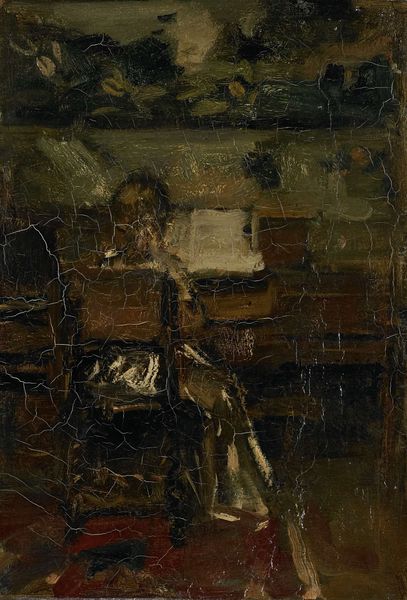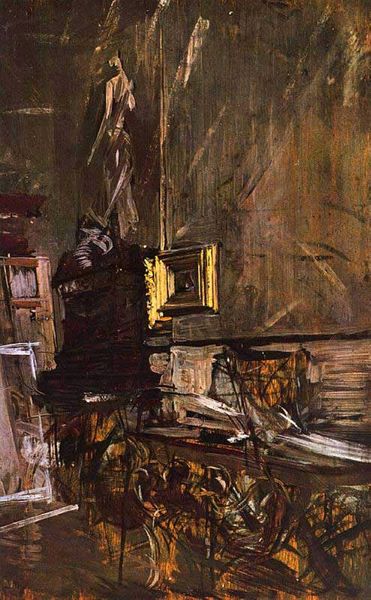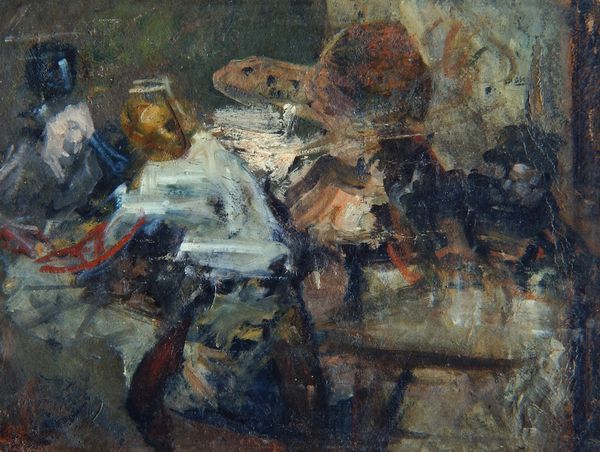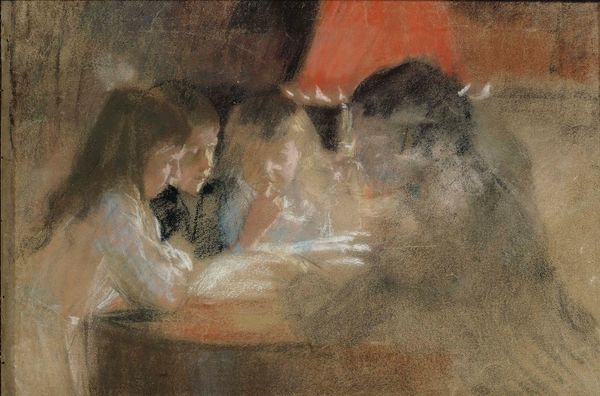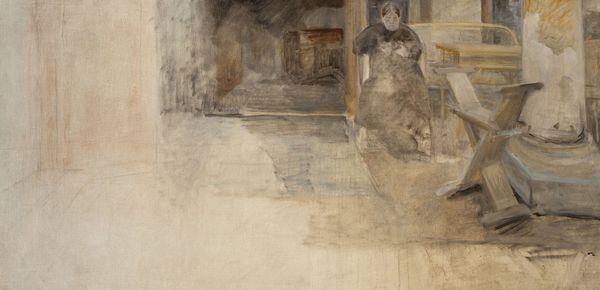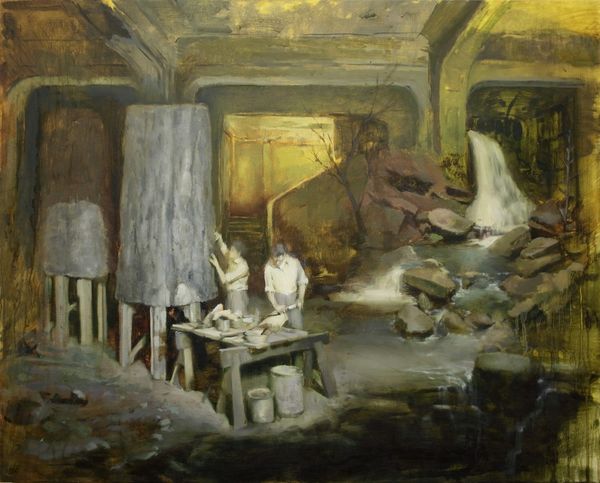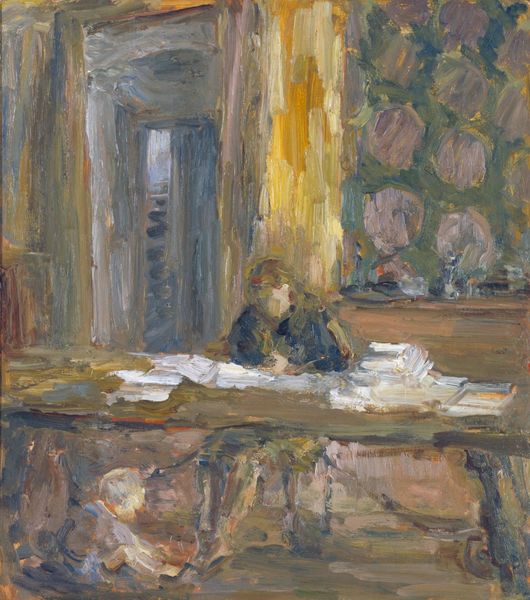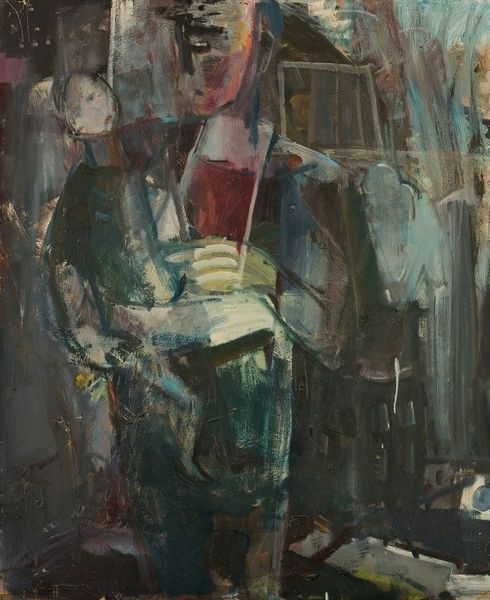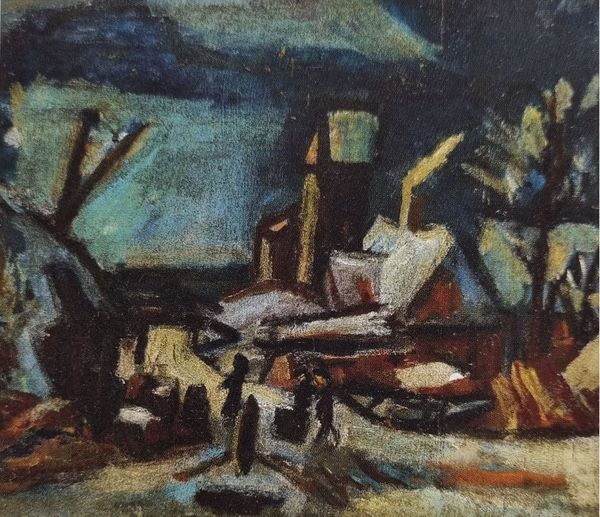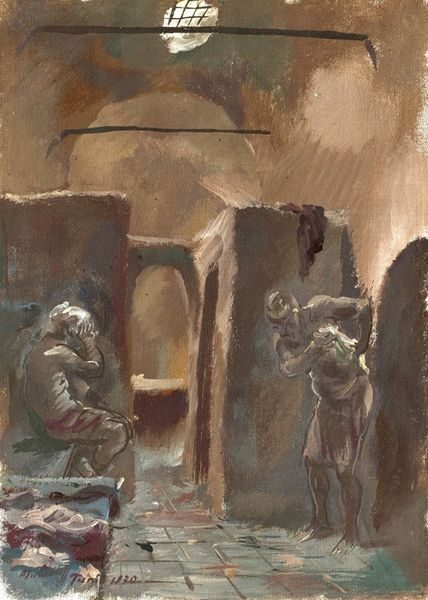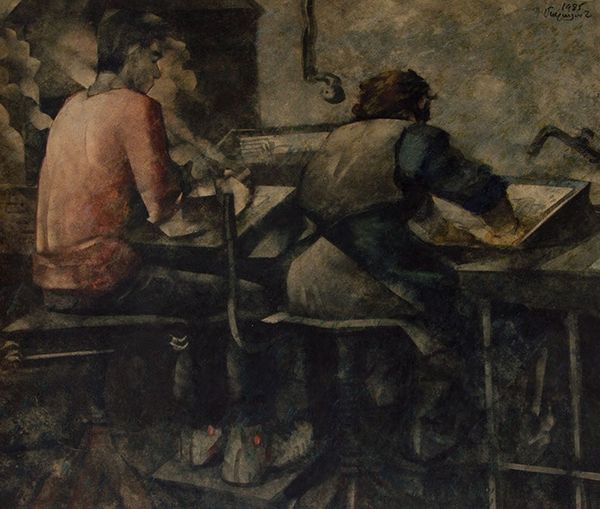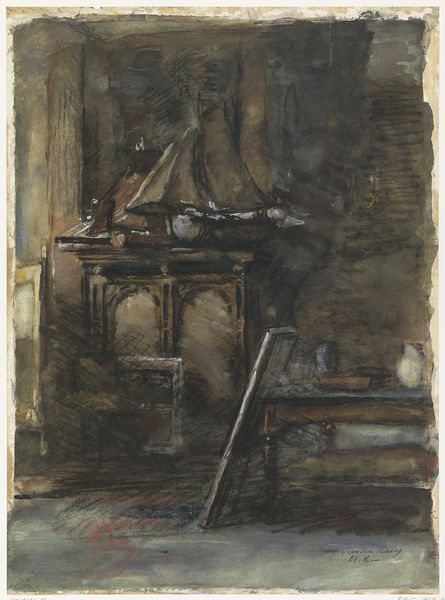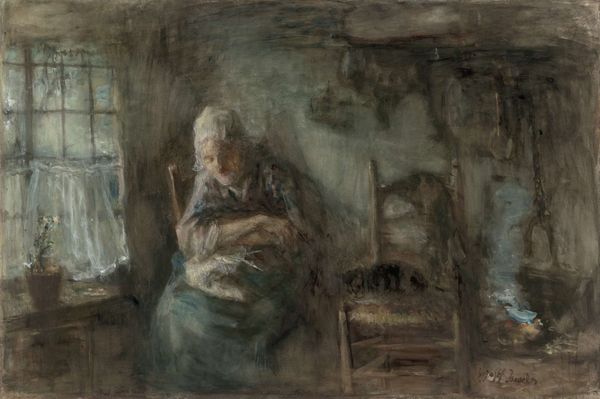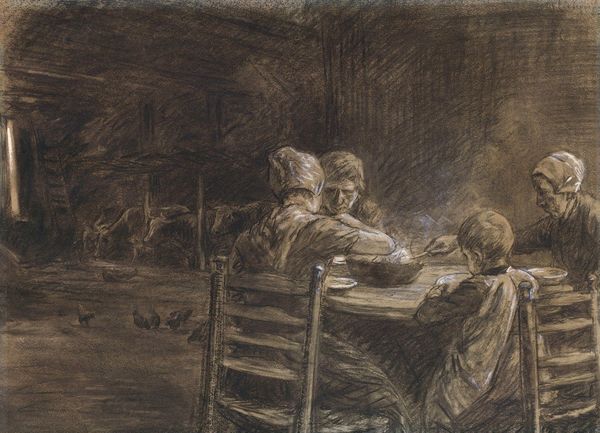
oil-paint
#
portrait
#
oil-paint
#
charcoal drawing
#
oil painting
#
genre-painting
#
realism
Copyright: Public domain
Curator: Looking at Ivan Mrkvička’s “Study – Father Paisius,” dating back to 1898, one gets a sense of not just a portrait but an insight into a specific cultural moment. Editor: It's quite somber, isn't it? All muted browns and greys. The way the oil paint seems scrubbed into the canvas gives it a tangible, almost textural presence. Curator: It is evocative. The choice of portraying Father Paisius, a key figure in the Bulgarian National Revival, connects directly to the era's rising national consciousness. It presents interesting parallels with broader questions of identity and representation. What stories does it tell about the artist's own cultural affiliation? Editor: Beyond the iconographic, notice how the oil paint is built up, layer upon layer. You can almost feel the hours of labor and thought put into constructing this image. The table with the books and the cross becomes a fascinating focal point. Curator: The setting undoubtedly underscores his importance. The light coming through the window creates an intimate, hallowed space for intellectual and spiritual work. Considering that this was a period of intense national and cultural debate in Bulgaria, Mrkvička effectively imbues the image with a distinct political undercurrent through his sensitive rendering. Editor: Yes, it is quite striking. One could ask where Mrkvička obtained his materials? From what workshop did he purchase his oils? From what timber did he create the frame? These questions about the history of object-making illuminate additional questions surrounding the process. Curator: Precisely, we're delving into multiple layers of historical contexts: artistic expression, cultural representation, and underlying power dynamics all at play in Mrkvička’s choice and portrayal. Editor: Looking closely, there is an earnest quality. It invites reflection not just on who Father Paisius was, but also on the very nature of artistic practice. The weight of his role is made so physically apparent. Curator: A truly nuanced engagement, weaving personal vision with the intricate fabric of historical narrative. Editor: It certainly underscores the inherent value of studying art by really getting into how it's made, appreciating its history and impact simultaneously.
Comments
No comments
Be the first to comment and join the conversation on the ultimate creative platform.
